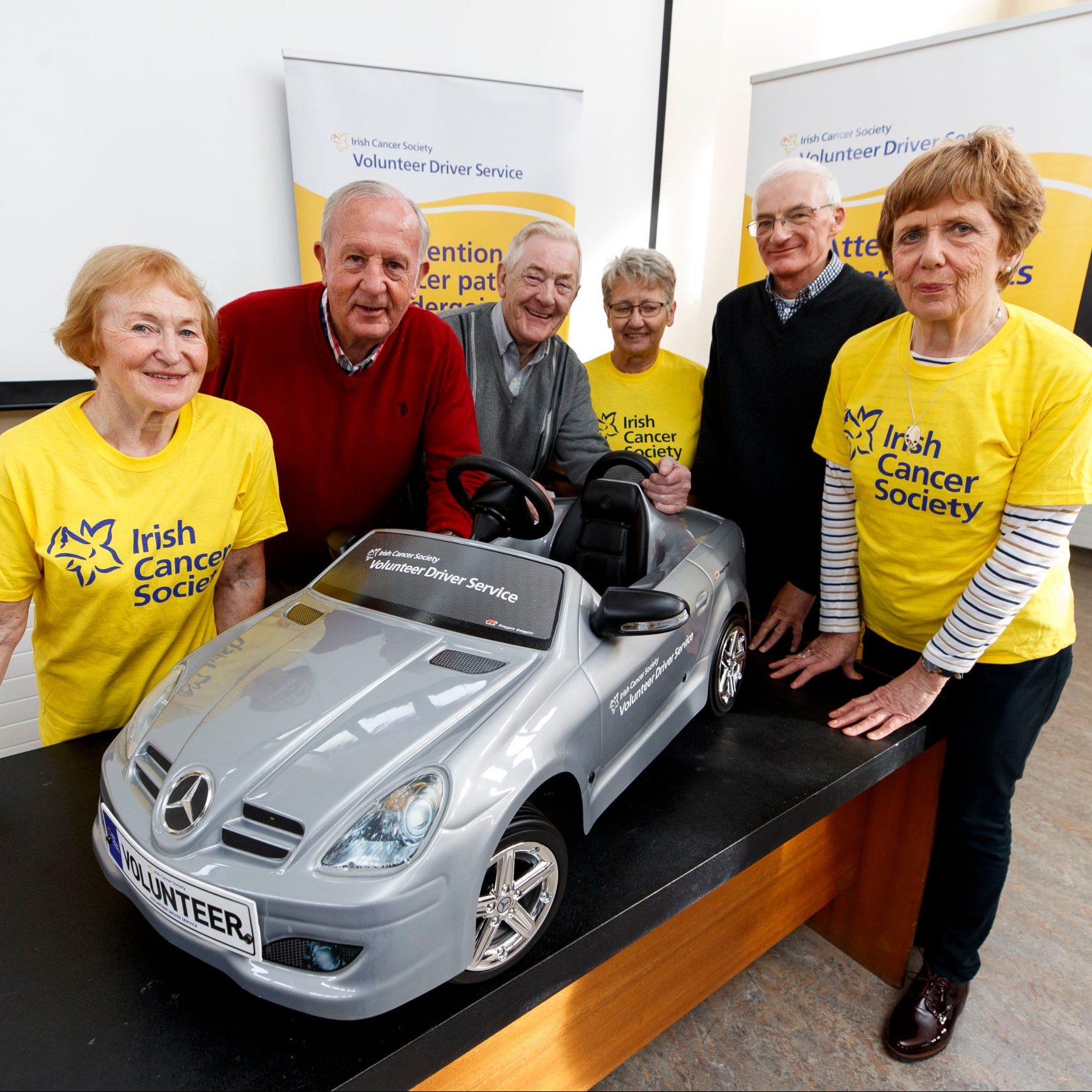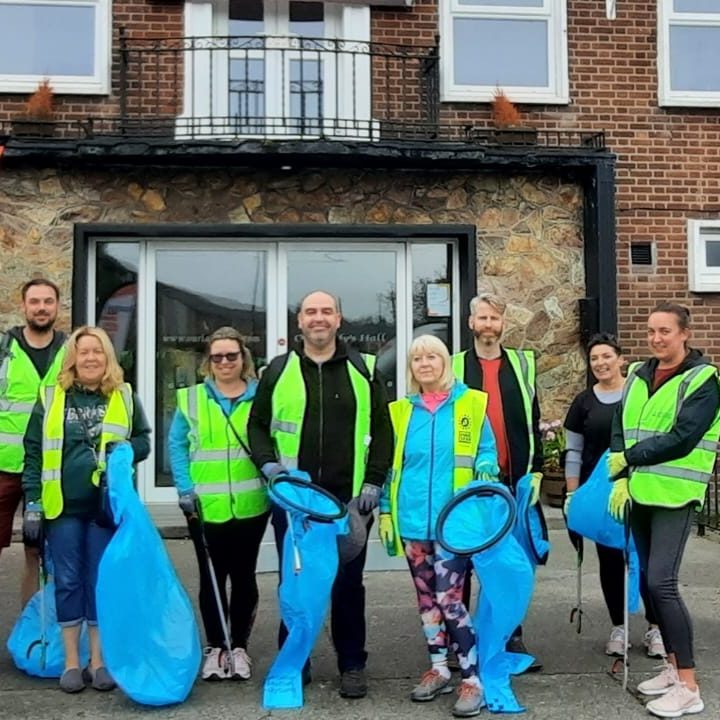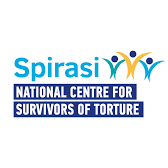
Nationwide
The Irish Cancer Society’s Volunteer Driver Service has been in operation since 2008. It offers a chemotherapy transport service to cancer patients attending public hospitals throughout the Republic of Ireland.
The service is delivered by a network of volunteer drivers all across the country. All volunteers are trained, interviewed, garda vetted and reference checked before they start volunteering. Once a volunteer becomes a driver with the service, they have access to a daily list of patient appointments that need to be ‘picked’.
The volunteer will then be given all patient details and will contact the patient they day before the drive to reassure them and re-confirm the drive details. On the day of the drive, the driver will pick the patient up at the door of their home, drive them to the door of the hospital and wait for them. Once the patient is ready, the driver will go back to the hospital door, pick them up and drop them off at the door of their home.
“Our drivers are all volunteers,” says the Irish Cancer Society. “They give their time freely to strangers to try to make their lives easier. Many of our drivers have been touched by cancer themselves, or through family, so they know how tough a treatment day can be. We ask that they drive for a minimum of two days a month but many offer more.
“Drivers go above and beyond for patients. Patients can be embarrassed or secretive about how vulnerable they are so a friendly local face is sometimes just what they need to believe that people care, to allow them to open up. Volunteers aren’t just drivers, they listen empathetically in the car to some very difficult stories, patients can really struggle. Our drivers might be the first face a patient sees after some unexpected bad news, or they might have no one else to talk to about their cancer as they are putting on a brave face for their families. They are an inspirational group and it’s a privilege to work with them.”

Co. Dublin
The Tidy Drimnagh group has been operating for five years, litter picking, planting, and maintaining public shared areas in their Dublin neighbourhood.
“This year we launched our Drimnagh Biodiversity Plan 2022 to promote biodiversity awareness in the community. We linked in with our local authority to plant a wildflower meadow on one of the biggest roundabouts in Drimnagh. The planting was pollinator-focused, creating a habitat for pollinators and other insects.
“We have placed some planting on approach roads into Drimnagh with a mix of plants and numerous planters in concreted areas to promote greening in areas where planting in the ground is not possible.
“Our volunteer activities happen weekly. Not everyone is available each week so the numbers can fluctuate but our group has around 30 dedicated volunteers. We regularly link in with our local schools for litter picks and planting.
“Before the pandemic, we were gathering monthly in one area of Drimnagh (on rotation) for a community litter pick. We stopped our work when the pandemic hit in line with government guidelines. And we realised when we were allowed to return to this work, we would have to return as individual family groupings as social distancing was still advised. It is from this that the idea grew that people could volunteer (and be supported with equipment etc) to ‘do their own street’.
“We have built in the past 24 months a strong, active, street leader type infrastructure which allows each street in all of Drimnagh to be litter-picked every week. We have managed to grow not only volunteer numbers but also general awareness of the need for a nice town that is tidy, green, and friendly.”

Nationwide
Spirasi’s befriending support programme started in 2016, and currently has over 80 volunteers. Spirasi is the national centre dedicated to the rehabilitation and wellbeing of refuges and asylum seekers living in Ireland who have experienced torture.
“Our befriending support is the main volunteering-involving aspect of our work,” says Spirasi. “Following screening and training, a volunteer befriender is matched with a client who is seeking befriending support. They meet once a week for an hour or so. Generally, this is in-person. The support the volunteer befriender gives can include help with language and literacy, emotional support, practical support and help/insight in understanding Irish culture.
“While the average age of our volunteers is 63 years, the majority of our client befriendees are in the age ranges 30-45 years. Befriending in Spirasi is an intergenerational, intercultural and interfaith endeavour.”
Testimonials from Spirasi clients: